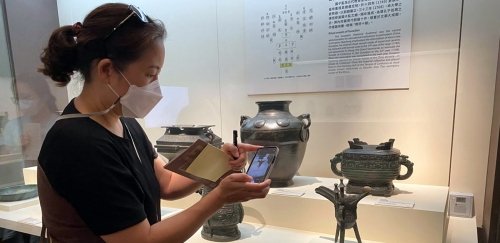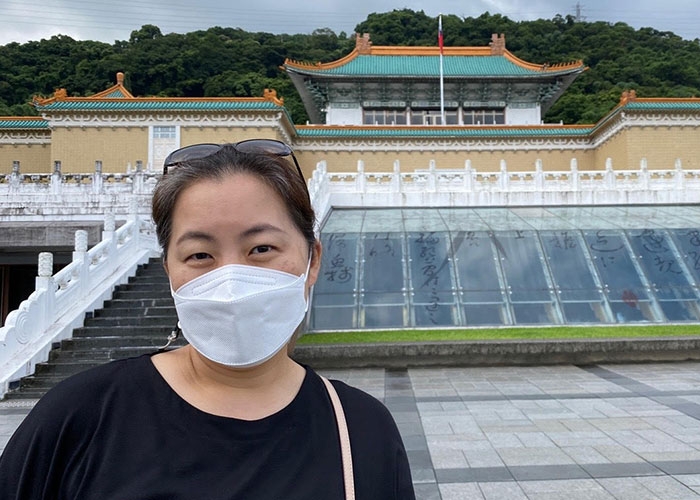RIC Faculty Member Explores the Imperial & Public Feasts of Ancient China
- News & Events
- News
- RIC Faculty Member Explores the Imperial & Public Feasts of Ancient China

These bronze vessels at the National Palace Museum were once used at rituals and feasts by emperors and aristocrats.
RIC Associate Professor of History Moonsil Lee Kim (pictured above), who is also co-director of RIC’s Global Studies Program, is on sabbatical in Taiwan to research how Chinese bronze vessels were used in ancient rituals and feasts.
Much of China’s imperial treasures, she says, were moved to Taiwan in the early 20th century during the Chinese Civil War. Today, Taiwan’s National Palace Museum has one of the largest collections of Chinese artifacts in the world. Many items in the collections were previously owned by emperors and aristocrats.
Kim is analyzing the bronze collections and rare books and documents of the Song to Qing dynasty (10th-19th century) at the National Palace Museum, at the National Central Library and at Academia Sinica, the most preeminent research institution in Taiwan where she is currently based as a visiting scholar.

Kim explains that her explorations are part of a larger project she is working on to understand the political, cultural, social and economic roles of imperial and public feasts in ancient China.
“In addition to bronze vessels and rare books, I’m exploring 2,000-year-old legal codes and administrative records written on bamboo slips to learn how food resources were distributed to people – from high officials to the convict laborers – through the feasting system,” she says.
When Kim isn’t working, she’s exploring the country to learn more about Taiwan’s society, history and culture.
“I expect to share my experiences with my history students when I return to the United States in 2023,” she says. “As co-director of the Global Studies Program, I hope I can be a positive influence and motivator for RIC students who want to explore the world or join the world as global leaders.”
Kim’s research is supported by the National Central Library of Taiwan through the Center for Chinese Studies’ Research Grant for Foreign Scholars in Chinese Studies.
